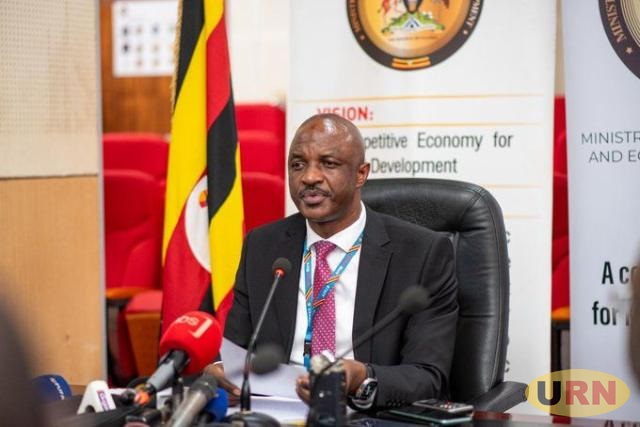
Kampala, Uganda | THE INDEPENDENT | The Ministry of Finance, Planning, and Economic Development has directed government statutory bodies to prioritise their expenditures even though the constitution gives them the freedom to use their money as they wish.
This comes after the recent public reactions towards the purchase of high-end new vehicles for past Speakers of Parliament, even as the fulfillment of other government obligations like salaries and wages, arrears, and other projects is still a struggle.
Ramathan Ggoobi, the Permanent Secretary and Secretary to the Treasury says that while the constitution allows such institutions freedom, they will now have to spend according to the priorities of the government. He was speaking while giving highlights of the Quarter Three Expenditure Releases and an update on the state of the economy.
The PSST also said this will help reduce the demand for supplementary budgets, another cause for a public uproar, over the way the government is spending money in times of reduced resources. Justifying the expenditures and the efforts being taken to control supplementary budgets, Ggoobi said he had blocked requests worth 3.5 trillion Shillings from various ministries, departments, and agencies.
In December last year, parliament approved a supplementary budget totaling about 3.5 trillion Shillings for different activities including paying off a Bank of Uganda debt, preparations for the hosting of the Non-Aligned Movement and G77+China summits, as well as for the next national population census, and classified expenditure for the Office of the President, among others.
Questions also arose as to why the Ministry of Lands, Housing and Urban Deployment was granted a supplementary land compensation to three cultural institutions, which they thought could wait. Ggoobi said the items in four categories could not wait for next year’s budget, giving an example of the security and classified expenditures which he said cannot be debated.
Julius Mukunda, the Chief Executive Officer at the Civil Society Budget Advocacy Group (CSBAG), challenged the ministry over some items that he thinks should not have been part of the supplementary budget. He wondered, for example, while the government had to include the expenditures for the two international meetings which they had known about for more than two years prior, and would have planned for adequately.
Mukunda said the ministry should be stricter on the government agencies to plan for major and even periodical events, like the national census which, in his view, was not an emergency to require a supplementary budget. He, however, hailed the ministry for a detailed explanation of some of the causes of additional requests for funds midway through the implementing process.
In response, Ggoobi said that some of the projects were too big to be catered for in the annual budget and they required either borrowing or asking for supplementary funds.
He added that the government will always spend according to the resources available, and this means postponing some previously planned projects to cater to priorities.
The PS said the government will continue improving the management of debt and expenditure, especially by boosting revenue collection and targeted spending. “Government is committed to fiscal consolidation under three key objectives that include; boosting revenue collection, rationalizing Government expenditure, and controlling Government borrowing,” he said.
Excluding debt, external fining, and local revenue, a total of 4.974 trillion shillings was released for the third quarter that runs between January and the end of March, bringing the total so far released to 19.921 trillion Shillings. This means that so far, 78.9 percent of the planned budget of 25.25 trillion Shillings has been spent.
However, including the supplementary budgets, the total comes to 29 trillion that is expected to be spent. When debt, external financing, and local revenue are added, the total released for the third quarter is 14.617 trillion, bringing the total for the year so far to 45.747 trillion Shillings.
*******
URN
 The Independent Uganda: You get the Truth we Pay the Price
The Independent Uganda: You get the Truth we Pay the Price





